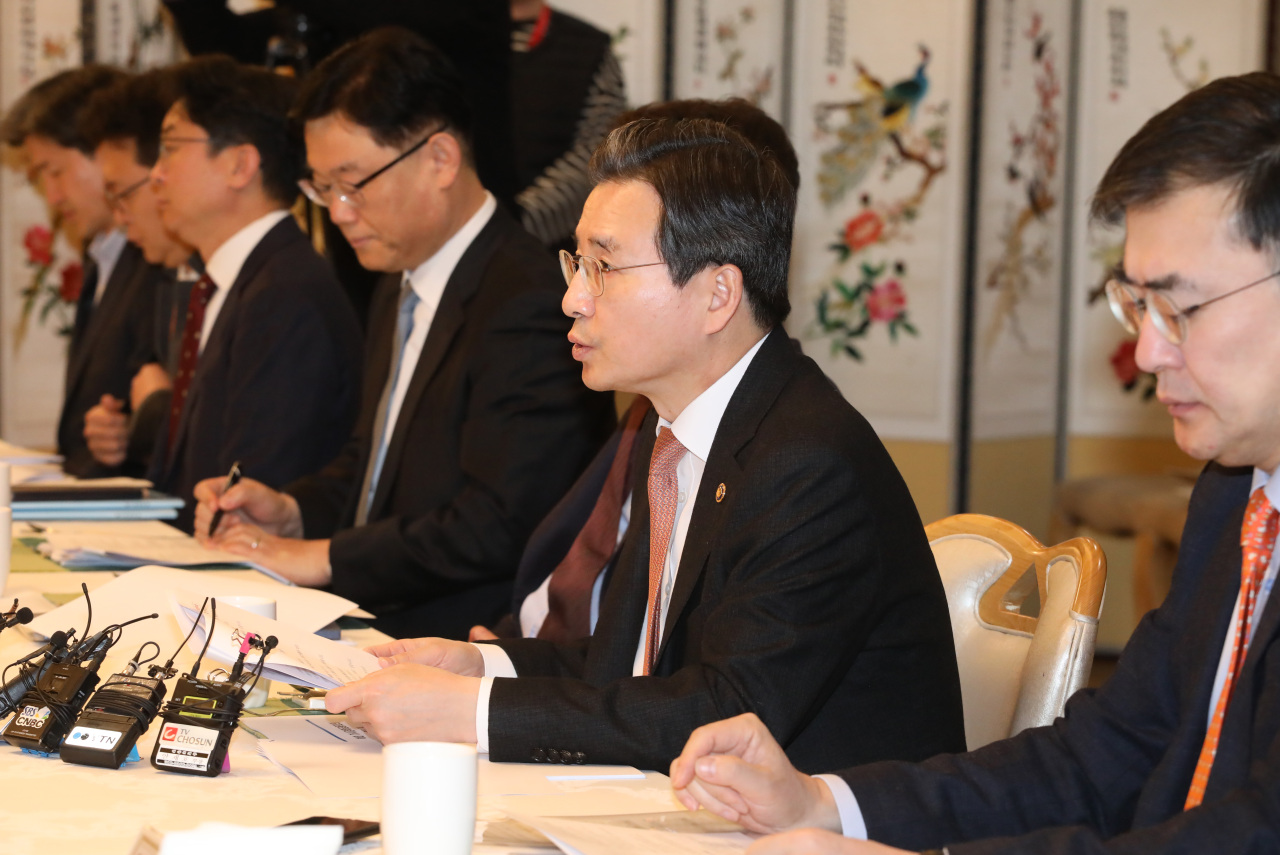Mideast tension to have limited impact on S. Korea: ministry
Strategic oil reserves may be released if necessary
By Bae HyunjungPublished : Jan. 7, 2020 - 17:08
Dispelling concerns about the economic ramifications of the latest US-Iran conflict, the Ministry of Economy and Finance said Tuesday that the geopolitical tensions would have limited impact on domestic oil supplies.
Acknowledging the increased level of volatility, however, it said it would consider the release of the country’s strategic oil reserves if necessary.
Acknowledging the increased level of volatility, however, it said it would consider the release of the country’s strategic oil reserves if necessary.

“So far, there have been no setbacks in trade and shipments of Middle Eastern crude oil (for South Korea),” said Finance Vice Minister Kim Yong-beom in a macroeconomic and finance policy meeting at the Seoul Government Complex.
“(Korea) does not import crude oil from Iran and no direct attacks have been made on oil refineries and tankers, so the latest event will not deliver immediate impact on domestic oil supplies.”
The country’s oil reserves were estimated at around 200 million barrels as of end-November, of which government reserves accounted for 96.5 million barrels, ministry data showed.
Asia’s fourth-largest economy is the world’s fifth-largest importer of crude oil, purchasing 70.3 percent of what it needs from the Middle East through the Strait of Hormuz. While Saudi Arabia is the unrivaled top exporter, Iran has been excluded from Korea’s list of trading partners since May 2019 in line with the US sanctions.
The vice minister also displayed confidence about Seoul’s financial soundness and its resilience to external uncertainties.
“(Korea’s) financial market has shown strong resilience during previous incidents in the Middle East, such as the attacks on Saudi Arabian oil installations last year,” he said.
Seoul held $479.8 billion in foreign bonds as of end-September and $408.8 billion in foreign exchange reserves as of end-2019. Its credit default swap premium -- a representative indicator of sovereign default risk -- hit 22.2 basis points in December, the lowest level since 2007.
The government nevertheless recognized the increased level of volatility in the global oil market, vowing to keep a close watch on the market and take “swift and drastic measures” should that volatility increase.
“We cannot totally exclude the possibility that the Middle East situation may escalate and stagnate,” Kim said.
“In case of oil supply emergencies, (the government) will secure additional supplies and consider the release of strategic oil reserves under a contingency plan.”
Meanwhile, global oil prices began an uptrend this week, with the Brent crude price hitting $70.73 per barrel at the New York Mercantile Exchange on Monday, local time.
But major market observers, including Goldman Sachs, said the latest “fear-inspired” oil price rally would not last long as oil supplies were not fundamentally disrupted.
By Bae Hyun-jung (tellme@heraldcorp.com)








![[KH Explains] How should Korea adjust its trade defenses against Chinese EVs?](http://res.heraldm.com/phpwas/restmb_idxmake.php?idx=644&simg=/content/image/2024/04/15/20240415050562_0.jpg&u=20240415144419)










![[Today’s K-pop] Stray Kids to return soon: report](http://res.heraldm.com/phpwas/restmb_idxmake.php?idx=642&simg=/content/image/2024/04/16/20240416050713_0.jpg&u=)